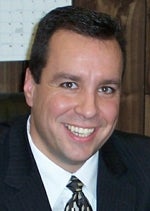Ask most people which industry they most associate with Gardner, and you will likely get a response about furniture. After all, in addition to boasting one of the world’s largest chairs, Gardner has a centuries-old history of making top-quality furniture for the world.
However, Gardner — and the entire North Central region — has a critical opportunity to tap into its own assets and geographic advantage to develop a thriving life sciences cluster that will mean a new future for the region.
Cluster Development
A thriving biotech cluster requires three key elements: industry, academic partners for research and a talent pipeline to fill the growth needs of the region. North Central Massachusetts, to some degree, contains all of these elements, but a specific strategy is needed if our region is to become a life sciences center in its own right.
The region has its share of higher education partners, including Mount Wachusett Community College (MWCC) and Fitchburg State, which can help generate the workforce needed to service new jobs. Numerous life sciences firms, including Bristol-Myers Squibb’s facility at Devens and New England Peptide (NEP) in Gardner, are doing interesting and important work within the North Central region.
In addition, just down Interstate 290 in Worcester sit some world class research facilities like the University of Massachusetts Medical Center, Worcester Polytechnic Institute and Clark University. NEP and others have begun developing strong relations with these facilities to boost their talent and research capabilities.
Despite all these raw materials, the region needs a collaborative strategy to become a true competitive player in the global life sciences marketplace. For this reason, a regional collaborative effort, led by NEP and the City of Gardner, is designing and executing a plan to bring more life sciences activity and jobs to North Central Massachusetts.
NEP has created a new partnership with MWCC to provide students with internships and a real-life understanding of the industry. It has also created a program with the Ashburnham-Westminster Public School system that will allow Oakmont High School students the opportunity to interact with NEP employees and gain an on-site perspective of a working bio-manufacturing firm.
There is an additional element to consider when creating a life sciences cluster: the cooperation of government to help a region meet its goals. In that regard, North Central Massachusetts is extremely fortunate to have strong support both from state and local government officials. On the state side, our legislators, particularly Sen. Jennifer Flanagan and Rep. Robert Rice, serve as strong advocates for building a regional cluster.
Furthermore, the Massachusetts Life Sciences Center (MLSC), the state’s groundbreaking life sciences investment and tax incentive program, has been extremely helpful in laying the building blocks of biotech growth in the region. The City of Gardner and NEP have had discussions with the MLSC about working together to develop a Greater Gardner Life Sciences Center, which will serve as a cornerstone to developing more biotech-related jobs and activity in the region.
The economic history of New England has shown that the regions that reinvent themselves are the ones that succeed over the long term. North Central Massachusetts has the potential to deliver the benefits of an exciting and growing new industry; it is critical that we work together to make this potential become a reality.
Mark Hawke is the Mayor of Gardner. Dave Robinson is CEO of New England Peptide, a Gardner-based manufacturer of custom peptides.

